How Much Food Waste Do Irish Businesses Produce Every Year?
Although there is currently no food waste-specific reporting system, according to a recent Environmental Protection Agency (EPA) study, Irish businesses waste a staggering amount of food each year. The study estimates that approximately 1.1 million tonnes of food are wasted annually, with most of this waste occurring in the retail and hospitality sectors.
Let’s first have a look at the problem in general, and then at the businesses that produce the most food waste in Ireland.
What is food waste?
Simply put, food waste is discarded or uneaten food. This can include food thrown away at the consumer level and food lost or discarded at the production, distribution, and retail levels.
Food waste can occur for various reasons, including;
- Overproduction
- Cosmetic standards
- Consumer demand for perfect-looking produce
- Inadequate storage
- Transportation infrastructure
What are the impacts of food waste?
Food waste has many negative impacts on both the environment and society. Some of the significant impacts include:
- environmental: food waste is a major contributor to greenhouse gas emissions. Additionally, the water, land, and energy used to produce & transport wasted food can also have a negative impact on the environment
- economic: food waste is a significant waste of resources, including water, land, labour, and money
- social: food waste can contribute to global food insecurity, as wasted food could be used to feed people in need
- public health: food waste can impact public health – it can lead to a lack of access to nutritious food, which can contribute to diet-related health issues such as obesity, heart disease, and diabetes.
- landfill: food waste in landfills can lead to methane emissions that harm air, water, and soil quality.
So, who wastes the most food?
Looking at which industry wastes the most food, the retail and hospitality sectors are responsible for approximately 45%.
In retail, supermarkets and grocery stores contribute the most to food waste, approximately 25%. Primarily this occurs due to overstocking, overproduction, and strict cosmetic standards for produce. For example, supermarkets often reject fruits and vegetables that do not meet specific size or colour requirements, even though they are perfectly safe to eat.
The hospitality sector, including restaurants, hotels, and catering companies, also plays a significant role in food waste – approximately 20%. Most of this waste occurs in kitchen operations due to overproduction, poor inventory management, and a lack of understanding of properly storing and using food.
In addition to the retail and hospitality sectors, the agricultural sector also contributes significantly to food waste. This includes waste that occurs during crop production, harvesting, and transportation. For example, many crops are left unharvested due to a lack of market demand, or they may be rejected due to cosmetic imperfections.
It is worth mentioning that consumers also play a role in food waste. The amount of food wasted varies depending on the region and country, but globally, it is estimated that around one-third of all food produced is wasted.
In developed countries, a significant amount of food waste occurs due to overbuying or not planning meals properly, with around 40-50% of food waste happening in the household.



